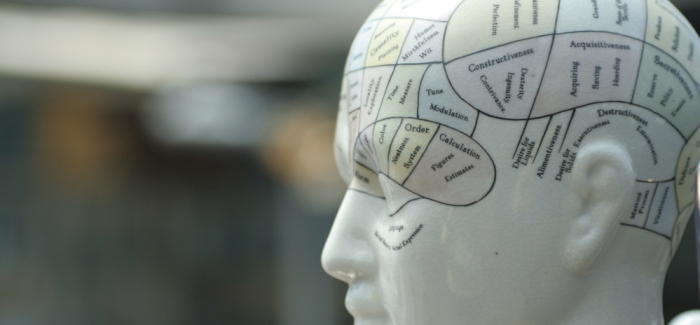If you studied politics, you’ll have gained skills useful in both the public and private sectors, in roles which are more varied than you might expect. Read on to find out what political jobs you might like to explore.
Political careers within government
Member of parliament (MP)
The most obvious career path for politics graduates would be a role within the government, for example as a member of parliament (MP). MPs represent the residents of their local community in national affairs, and must first campaign to be elected, either as a member of a political party or as an individual. To succeed in this role, you should have a good knowledge of the issues affecting both your local area and the nation as a whole. You should also be motivated, determined and a confident, persuasive public speaker. Commitment is also an important factor for success as an MP; to demonstrate this, you could start by volunteering for your chosen political party.
Political assistant
Political assistants are employed by elected MPs or political candidates to carry out administrative and secretarial tasks. They also help with campaigning, research and publicity, perhaps responding to enquiries from the media or members of the public. Other tasks include assisting with campaigns before and during elections, keeping up to date with current affairs, contributing to writing reports and speeches, and managing and collaborating with other members of the politician’s team. To become a political assistant, it’s essential to have relevant experience, such as from shadowing a politician or taking part in an internship at a local or national government office.
Government social research officer
Government research officers help to inform the policy decisions of ministers. To do this, they conduct research and evaluation activities, providing government departments and local authorities with the evidence required for the preparation, execution and assessment of policies. It’s very helpful to have studied social or public policy during your degree for entry to this role, as you’ll need a strong knowledge of social research, and good skills in this area.
Roles within the civil service
If you want to work within the civil service, you could choose from a variety of political jobs in government departments, agencies or non-departmental government bodies. This political career involves helping governing bodies to develop and implement policies on a daily basis. Your responsibilities will usually include contributing to policy development, answering requests for information from other government departments or members of the public, generating analysis and reports, and managing resources. In the United Kingdom, graduates can follow a Civil Service Fast Stream to quickly gain experience within the civil service, which includes roles in diplomacy (see below).
Other political jobs
Diplomatic service officer
This political career is ideal for those who are interested in foreign affairs, quick-thinking and skilled at solving problems. It might particularly suit graduates of international relations. As a diplomatic service officer, you’d live in another country, representing the interests of your home nation and its citizens. You’d also provide advice and support to ministers developing foreign policy. To succeed in this role, you should be a good communicator, and able to get on well with people from all societies and cultures. Competition for this political career is fierce and entry often involves a series of tests. You don’t need to be fluent in a foreign language for this role, but it would definitely be an advantage.
Public affairs consultant
This role is often referred to as a ‘lobbyist’, but the work of public affairs consultants is more extensive than this suggests. Public affairs consultants offer valuable political and public policy guidance to clients using their knowledge of the political system, as well as media resources and personal contacts. They can be employed by both public and private sector organizations, such as charities, governments and international bodies such as the UN. To gain entry to this political career, work experience is again essential. This could be from an internship in a political office, charity, pressure group or public affairs consultancy, or from involvement with a political party or your university’s student union.
Political journalist
If you’ve got a keen interest in both national and international political affairs, and want to be involved in providing in-depth news and analysis on the latest political events, this political career could be for you. You’ll also cover controversies, campaigns and debates, and offer insights on possible outcomes, incentives and trends. You might work in just one field of journalism (print, online, TV, radio), or across a combination of these, and perhaps even make a name for yourself as a recognized and respected observer in the field. To succeed in this career, you should have an investigative mind, be determined, a good writer, and able to produce factually accurate content to tight deadlines. To become a political journalist, it’s crucial to have relevant experience, for example at the office of a local or national newspaper, and build up professional contacts. You could also consider taking a postgraduate degree in journalism.
Public relations account executive
The skills you’ve gained from your politics degree could also be relevant in a role within public relations (PR). As a PR account executive, you’ll use various forms of media to build and sustain a good profile and reputation for your employer (an individual or organization) and their intended audience. Among other tasks, you’ll plan publicity strategies and campaigns, monitor and analyze media coverage, and commission market research. To become a PR account executive, you might find it helpful to complete a postgraduate degree in the subject and/or complete relevant work experience.
Careers in human rights and charities
If you’re interested in other ways in which you can use your politics degree to make a difference (possibly on an international level), there are a huge variety of roles available within the human rights and charity sectors. Look for openings in central and local government bodies; worldwide governmental and non-governmental organizations; charities, pressure groups and campaigning organizations; academia and law. You could work in communications and campaigns, helping to raise awareness about human rights issues and abuses. Or perhaps you’ll be involved in managing projects designed to improve conditions for different groups of people. Other charity jobs you might be interested in include roles in policy development, public relations and fundraising.
--
‘What Can You Do With a Politics Degree?’ is part of our ‘What Can You Do With…’ series.
We have also covered art, biology, business, communications, computer science, English, engineering, fashion, history, geography, law, marketing, mathematics, performing arts, philosophy, psychology, sociology, chemistry, economics and physics.








